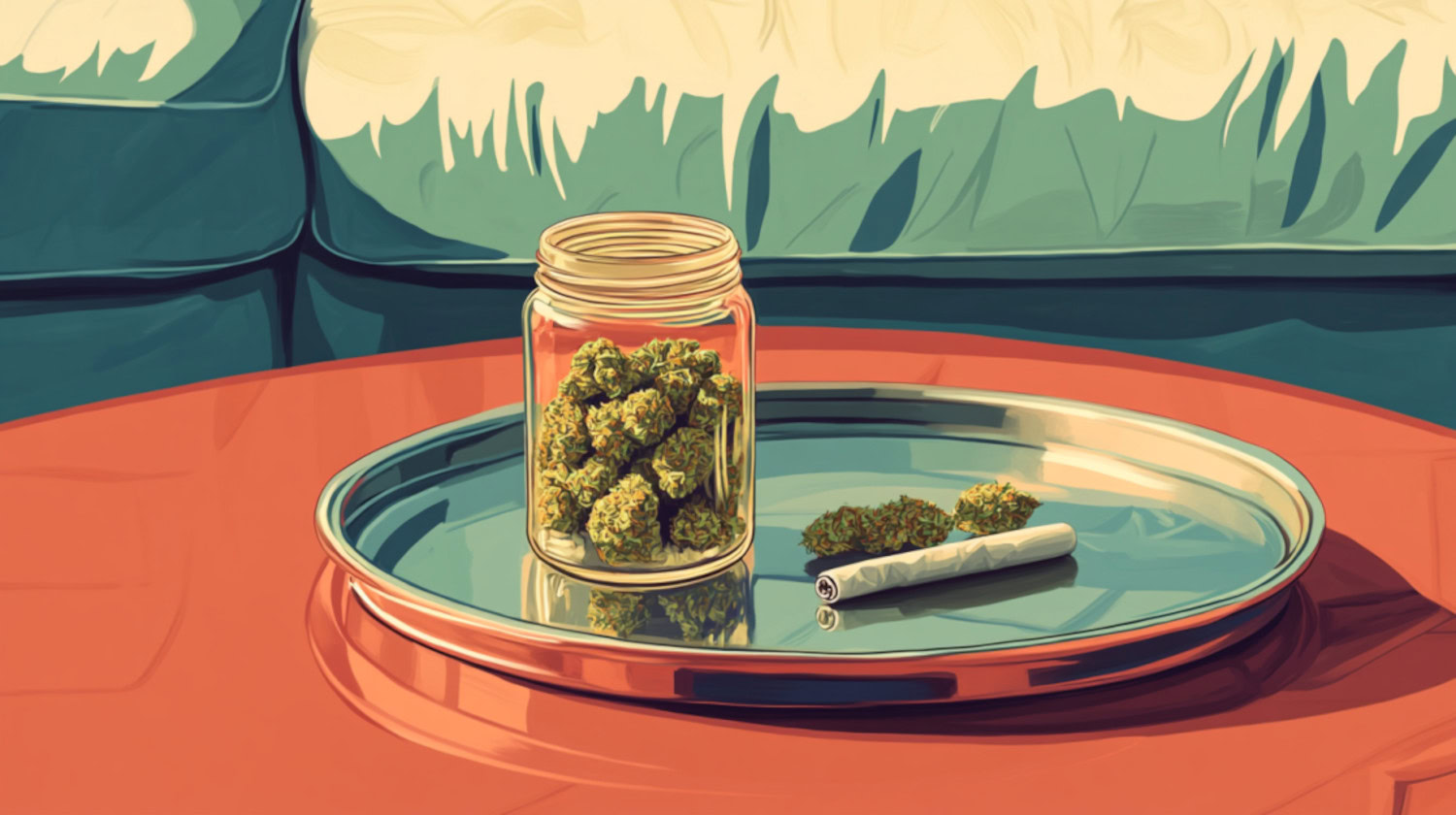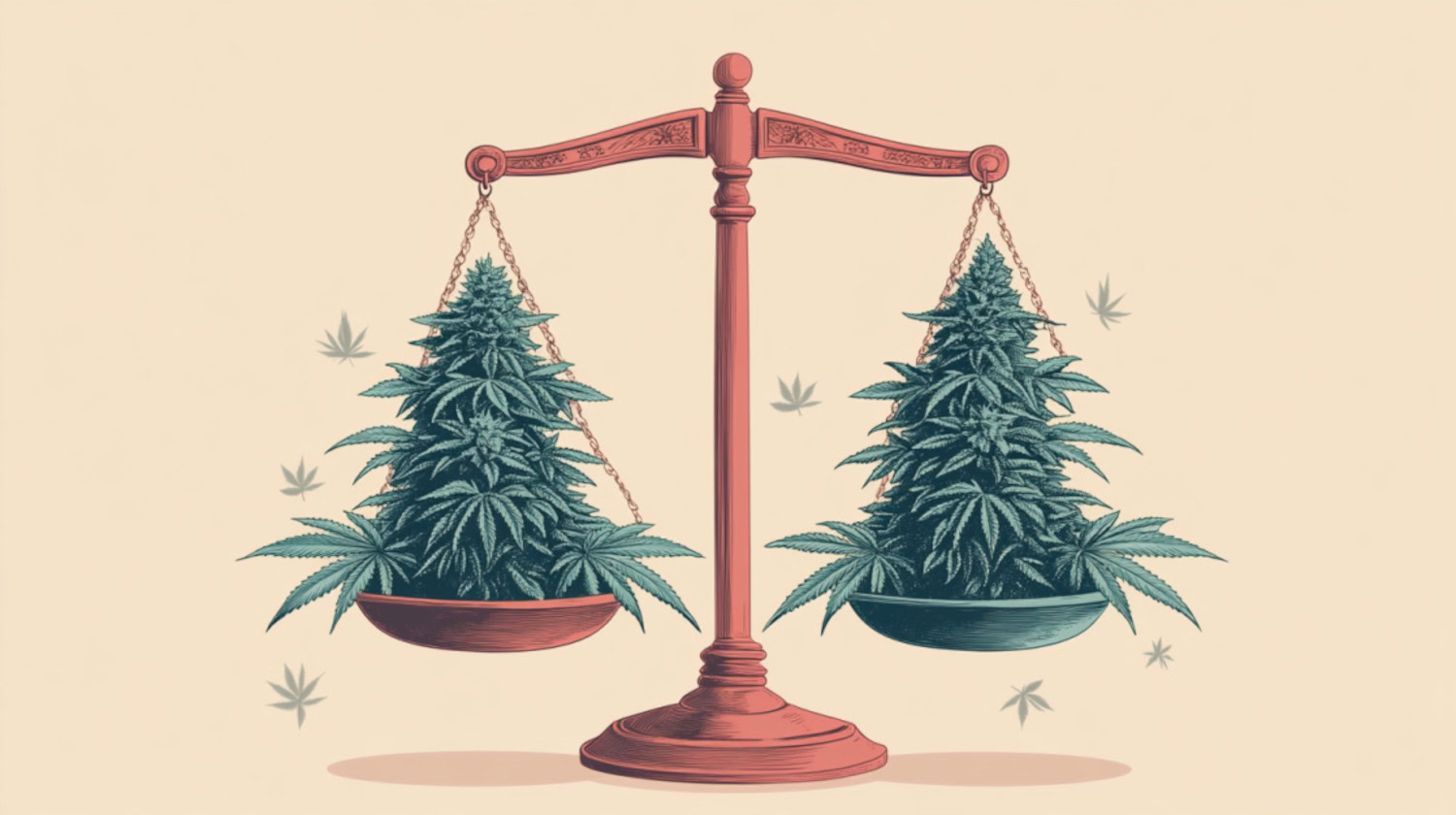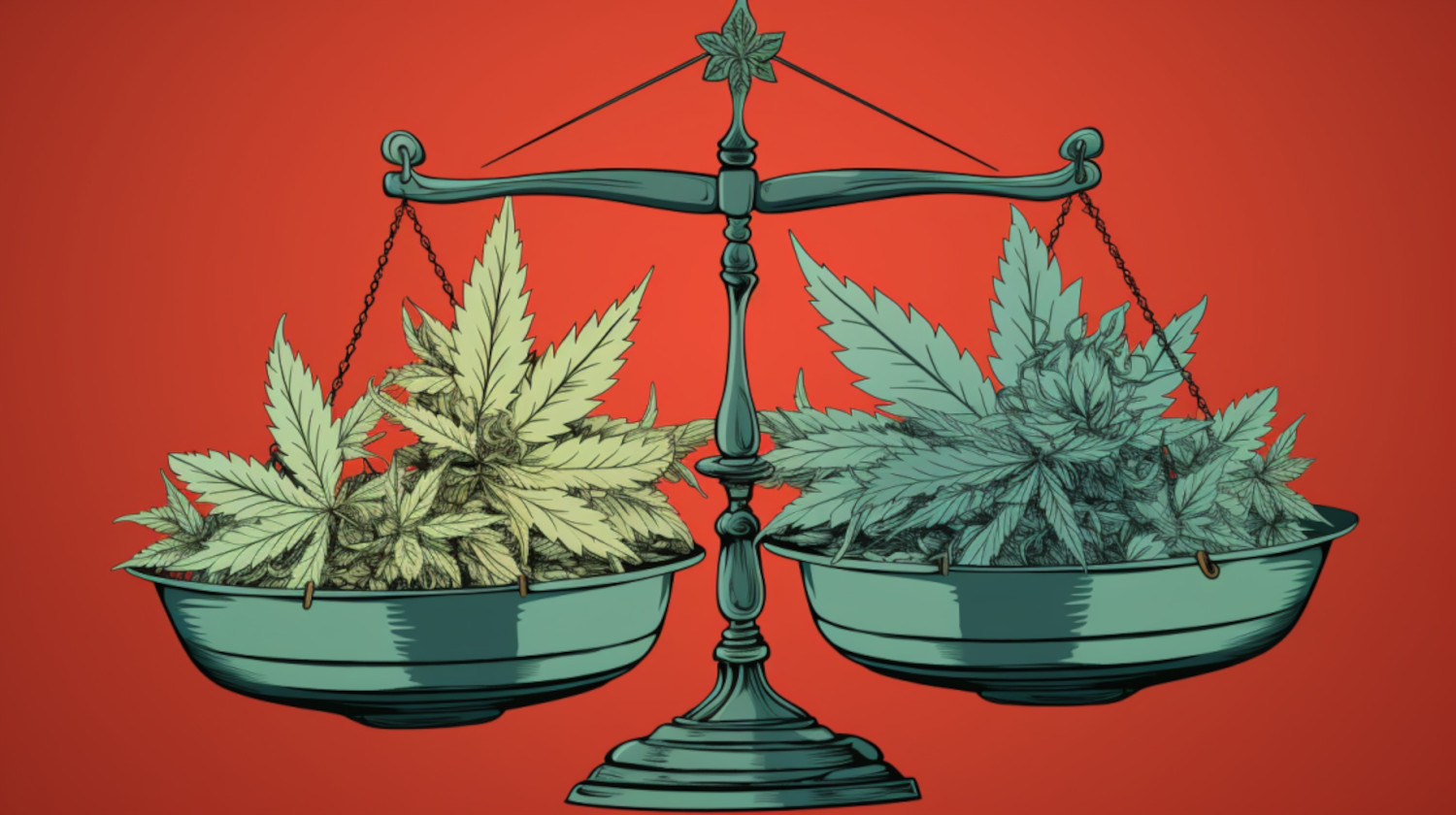Key Takeaways About a Quarter of Weed
- A quarter of weed is one-fourth of an ounce, or 7 grams, of cannabis.
- A quarter is enough weed for six to 14 joints or at least a dozen bowls.
- Prices for a quarter of weed range from about $25 in some states to $70 or more in others.
Shoppers at most cannabis dispensaries will have their choice of cannabis flower available in several different package sizes. While the most popular package sizes are generally eighths (3.5 grams) and pre-rolled joints, shops frequently offer quarters of cannabis, as well. But just how much is a quarter of weed, and how long should it last?
How Much is a Quarter of Weed?
A quarter of weed is a quarter-ounce of cannabis flower or about 7 grams. As such, all quarters of cannabis are the same weight, assuming they were weighed accurately. However, the volume in that quarter varies depending on several factors, including moisture content and density.
Cannabis flower with a relatively higher moisture content weighs more than drier buds, so it might take more dry buds to fill a jar or bag. Additionally, some buds are loose and airy, while others are more compact and denser, so a quarter of loose buds will have a larger volume compared to the same weight of denser flower. Despite these differences, patients and consumers can be reasonably confident that all quarters of cannabis flower they buy at a licensed dispensary will weigh the same amount.
When they offer them, cannabis companies usually package quarters of bud in either glass jars or mylar bags. Compared to other cannabis package sizes, a quarter is twice as much bud (by weight) as an eighth. And, as the name suggests, four-quarters of weed equals one ounce.
What Can You Do With a Quarter of Weed?

A quarter of cannabis can be used in several ways, the most common being smoking and vaping. A quarter is enough weed for six generous joints or more than a dozen smaller ones. If using a pipe or bong, a quarter should be enough herb to load a dozen decent-sized bowls or over 20 smaller ones.
A quarter is also enough to make a small batch of cannabis edibles. However, a larger amount of cannabis is more appropriate for making tinctures.
- Joints: A quarter of cannabis is enough to roll six good-sized joints of 1.2 grams each. Or roll 14 smaller joints that each have a half-gram of herb. Having the joint rolling tips on hand can make the process that much more efficient.
- Bowls: Pipe and bong smokers will get at least six bowls, depending on their size. Smaller bowls and one-hitters can be loaded many more times. A quarter-gram bowl can make 7 grams of bud last through 28 small bowls.
- Edibles: Several different types of edibles can be made at home. A quarter of cannabis is enough to make a small batch of weed edibles. Be sure to decarboxylate to activate the flower’s compounds so that the edibles actually work.
How Much Does a Quarter of Weed Cost?

The price of a quarter of weed depends on several factors, including the quality of the cannabis flower and where it is being purchased. Because of the continued federal illegality of cannabis, each state with legal weed has its own market, so prices are not consistent from state to state. Additionally, each state has its own cannabis tax structure that can significantly add to the final purchase price.
In many states, patients and consumers can buy a quarter of weed for $50 or even less. In other locations, however, the price will be higher. Generally, more mature markets like Oregon and Colorado will have lower prices, while newer markets will often have higher prices for cannabis products.
Here’s what patients and consumers might expect to pay, on average, for a quarter of cannabis, before taxes:
- Arizona & Massachusetts ~ $40
- California & Nevada ~ $50
- Colorado & Michigan ~ $30
- Illinois & Maryland ~ $70
- Missouri ~ $60
- New York ~ $80
- Oregon ~ $25
- Washington ~ $40
Consumers and patients can find the best deals on cannabis products by shopping around. Even those with a favorite dispensary may find bargains by visiting other retailers, either online or in person. Many shops also have loyalty programs that can help make cannabis more affordable.
How Long Should a Quarter of Weed Last?

How long a quarter of weed will last depends on each patient's or consumer’s personal usage. For occasional consumers, a quarter could last a month or more. Those who smoke a half-gram joint per day would see a quarter last for two weeks. Heavy consumers who use cannabis frequently throughout the day may go through a quarter in just a few days.
The time a quarter of bud lasts can also vary by consumption method. Those who smoke cannabis tend to go through a quarter the quickest, while vaping can make it last longer. Making low-dose edibles for microdosing THC can make a quarter of weed last even longer.
The amount of cannabis used by each patient and consumer is an individual matter that can vary from one person to another. Use a THC dosage chart if you’re unsure how much you should start with.
Where available, buying cannabis by the quarter-ounce rather than smaller package sizes can be more economical. If you’re a patient or consumer who wants to save money, ask your budtender about quarters of bud during your next dispensary visit.
The information in this article and any included images or charts are for educational purposes only. This information is neither a substitute for, nor does it replace, professional legal advice or medical advice, diagnosis, or treatment. If you have any concerns or questions about laws, regulations, or your health, you should always consult with an attorney, physician or other licensed professional.




